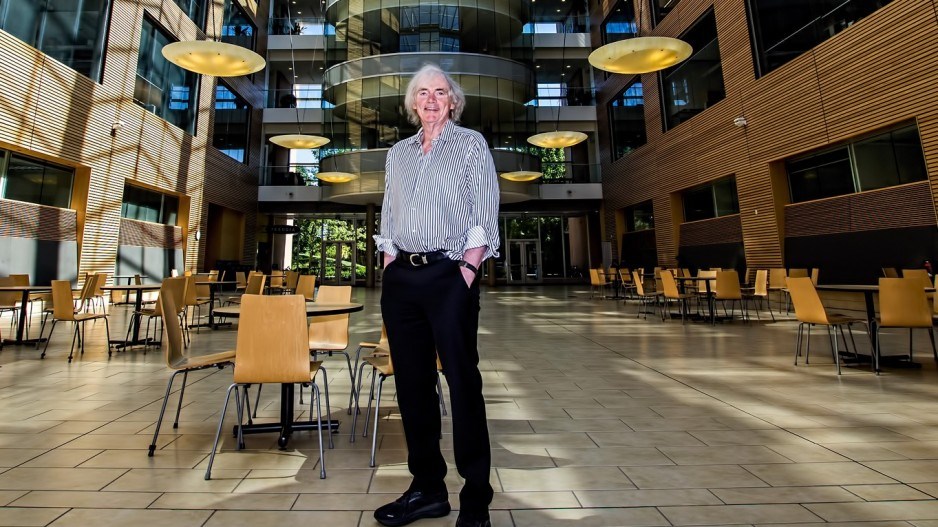The Canadian Medical Hall of Fame has named Vancouver life-sciences researcher, University of British Columbia Faculty of Medicine professor and entrepreneur Pieter Cullis as one of its six 2024 inductees.
Other inductees include John Dick, Catherine Hankins, Noni MacDonald, Allison McGeer and Thomas Roddick.
Cullis is known globally for developing the lipid-nanoparticle delivery technology that enables mRNA vaccines, such as those that protect against COVID-19, and other next-generation gene therapies, to work.
The news follows Cullis being snubbed by the Nobel Prize committee, which chose his two partners in helping create an effective Pfizer-BioNTech vaccine to treat COVID-19 – Katalin Kariko and Drew Weissman – as its 2023 Nobel Prize winners in the physiology and medicine category.
BIV last year speculated that Kariko, Weissman and Cullis would be in the running for a Nobel Prize.
Kariko, Weissman and Cullis provided essential work helping Pfizer and BioNTech create a COVID-19 vaccine that was injected into more than one billion people, perhaps saving millions of lives.
Together that trio has won many international awards.
Kariko and Weissman’s expertise was in engineering messenger RNA (mRNA) to be the active ingredient in the vaccine, while Cullis' role was creating the system for getting the vaccine's active ingredient into human cells.
The Nobel Prize committee oversight may have happened because the process for being awarded a Nobel Prize is that people must be nominated by eligible nominators. Whoever nominated Kariko and Weissman may have been the one who did not fully realize the necessary contribution that Cullis provided for the vaccine.
The Nobel Prize win comes with approximately US$1 million.
Germany-based Kariko, U.S.-based Weissman and Cullis had previously won Thailand's Prince Mahidol Award for medicine – a prize that came with a US$100,000 cheque to the trio. The three also pocketed US$3 million as part of winning Vietnam's VinFuture Grand Prize. They also won Canada's Gairdner Foundation fellowships, worth $100,000, and Taiwan's Tang Prize – an honour that came with a cheque for US$1.7 million, and a $350,000 grant for future research.
Cullis also worked to help the first RNAi drug to receive regulatory approval: Onpattro.
“I am incredibly honoured to be inducted into the Canadian Medical Hall of Fame,” he said. “The lipid nanoparticle technology enabling the COVID-19 mRNA vaccines reflect the efforts of literally hundreds of people. I have been extremely fortunate to receive credit for what was really a huge collective effort.”
Cullis in 1985 co-founded his first company, along with Mick Hope and Thomas Madden: Lipex Biomembranes, which marketed a device that Cullis calls the extruder. That venture would later morph into Northern Lipids and the trio would co-found Canadian Liposome Co.
Cullis helped establish Vancouver's Inex Pharmaceuticals, which focused on creating cancer-fighting drugs. Inex evolved to became Tekmira, and rebranded as Arbutus Biopharma Corp. in 2015.
Cullis also helped create UBC’s non-profit Centre for Drug Research and Development, which has since rebranded as AdMare Bioinnovations. The organization has helped build Canada’s life sciences sector ecosystem.



